Rafinat Yarullin: ‘I was in a factory in Ufa, my hair stood on end because of the way they work there’
The Board of Directors of Tatneftekhiminvest-holding discussed the application of succinic acid and highly profitable products — linear alpha-olefins
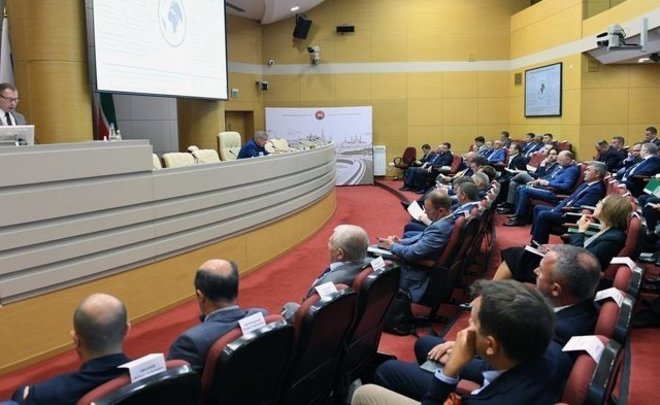
“Tatarstan plays a significant role in polymer processing, but these capabilities haven’t fully run out and there is potential for development and volume growth,” representatives of SIBUR said this talking about the republic’s achievements in petrochemistry at a board meeting of Tatneftekhiminvest-holding. The company presented feedstock and product solutions to use in construction, medicine, agriculture, transport and other sectors. Also, the possibility of launching the production of linear alpha-olefins and using succinic acid was discussed at the meeting. Read more in Realnoe Vremya’s report.
“These are products we need”
A report of Director General of Tatneftekhinvest-holding Rafinat Yarullin about the performance of enterprises of the Tatarstan gas and petrochemical complex during the first half of the year was a number one issue on the meeting’s agenda but it was held behind closed doors.
Transmission for the media was switched on during a speech of researcher of the Boreskov Catalysis Institute (Novosibirsk) Vasily Bolotov. He talked about the use of induction heating in thermal cracking of high-wax feedstock to ramp up the production of highly profitable products — linear alpha-olefins.
“Alpha-olefins are widely used in the industry. Nefis and Nizhnekamsk widely uses them in Tatarstan. They are used to make synthetic oils. Why are alpha-olefins of great interest? Because they are highly efficient, provide high biodegradability and reduce the environmental impact. An up 5% rise is forecasted in the alpha-olefin market. Nowadays producers of linear alpha-olefins don’t supply their products to Russia,” Bolotov indicated.
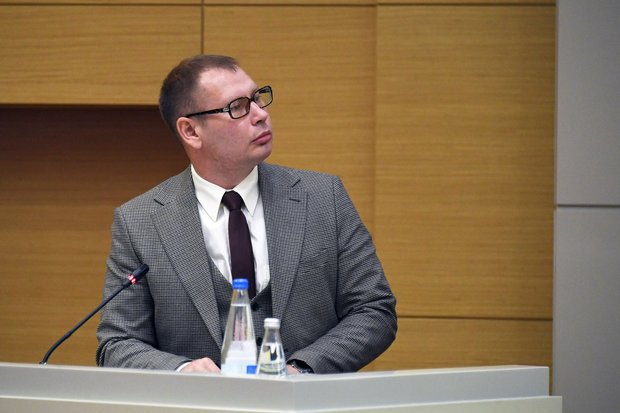
As the speaker added, scientists from Novosibirsk offered another way of making these products — it is liquid hydrocarbon cracking with selective catalyst heating. A long work was done to create it, it is contactless heat induction. The institute’s specialists also examined radiation-based method and microwave radiation method but they didn’t suit. The induction heating that is widely used in the Russian industry turned out to be the most productive way.
“We developed the scientific basis, illustrated it worked, linear alpha-olefins could be produced with a high efficiency. We need to develop a pilot unit to do an experiment to expand these technologies,” Bolotov concluded.
Director General of Tatneftekhinvest-holding Rafinat Yarullin commented on the scientist’s report. He indicated that these products were needed in Tatarstan and they would certainly find application.
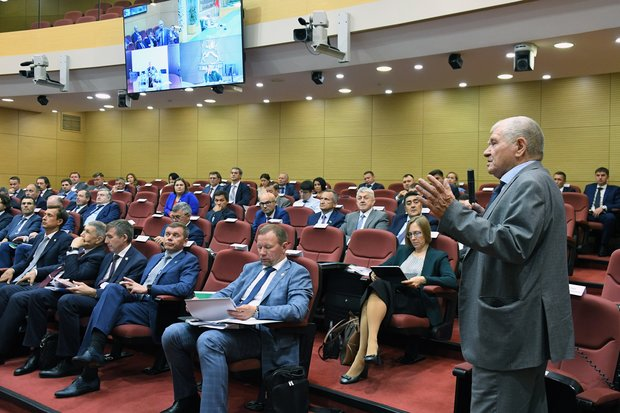
“We really need alpha-olefins. It is a new technology based on wax or slack wax. We plan to make slack wax in one of the oil companies but it can be bought in the market too. We don’t have slack wax in Tatarstan because we have turned everything into petrol, kerosene and diesel fuel with the help of hydrogen. This is a completely new approach to the feedstock of alpha-olefin production. Nefis needs this. The prime cost isn’t known yet, a pilot unit needs to be installed. It costs around 20 million rubles,” said the head of the holding.
“They could be interesting for carbon fibre production”
Representative of Ufa’s Gazokhim Engineering Nikolay Rudnev was next to take the floor. He talked about the organisation of succinic acid and N-Methyl-2-pyrrolidone. According to him, in the current conditions there are greater opportunities for Russian oil and petrochemical engineering companies. He said that the company has been in the market of engineering services since 2017. The company specialises in full-cycle engineering in the chemical, oil and energy fields, develops and grants licences in crude hydrocarbon high conversion and the production of the main organic synthesis following green chemistry principles. Rostec-Business Development is the key partner and co-shareholder — Rostec’s investment holding.
Rudnev talked about successful projects of the company in small-scale chemical production — from R&D to basic project development, equipment design and supply: the production of n-butyl vinyl ether and polymers based on it, tetrahydrofuran and 1,4-butanediol. It is offered to implement projects to manufacture succinic acid and N-Methyl-2-pyrrolidone, which are at the stage of R&D nowadays.
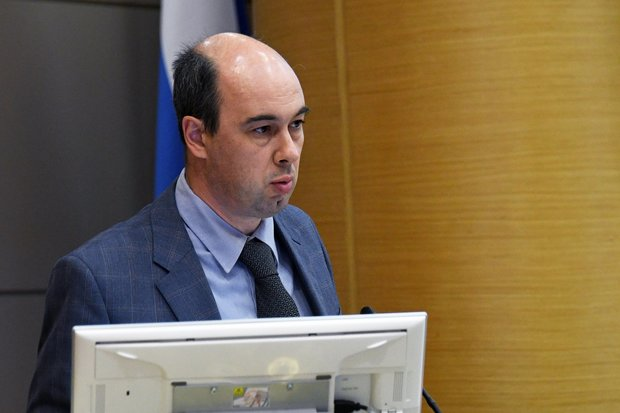
“The development of the production of succinic acid and N-Methyl-2-pyrrolidone complies with the import substitution programme. We seriously lack it in our country. As for succinic acid production, the works are also at the stage of research, development and testing. We plan to start making isocyanates in the future,” described Nikolay Rudnev.
Rafinat Yarullin too stressed the importance of using these products in Tatarstan. Also, he shared his personal impressions of his visit to a Bashkortostan enterprise:
“We need these products. They could be interesting for carbon fibre production. I visited their factory in Ufa, my hair stood on end because of the way they work. They gathered producers and scientists and make miracles,” said Yarullin.
“Tatarstan plays a significant role in polymer processing”
Board member and Managing Director of Development and Innovations at SIBUR Daria Borisova talked about the possibilities of development in the republic considering the products and intermediates of SIBUR. She presented feedstock and product solutions offered by the companies to manufacturers in such sectors as construction, medicine, transport, agriculture and consumer goods. The polymer processing sector’s development potential can be fulfilled mostly thanks to replacing finished product imports.
“Nowadays Tatarstan plays a significant role in polymer processing, but at the same time these capabilities haven’t fully run out and there is potential for their development and volume growth. If we have a look at Russia in general, mostly finished products are imported, while commodity polymer accounts for the smallest part. What is more, commodity imports grow faster than finished products. This means we have potential to replace imports of finished products,” said Daria Borisova.
Tatarstan Rais Rustam Minnikhanov summed the meeting up. He thanked attendees of the meeting and highlighted that the work with all speakers would go on in some way.
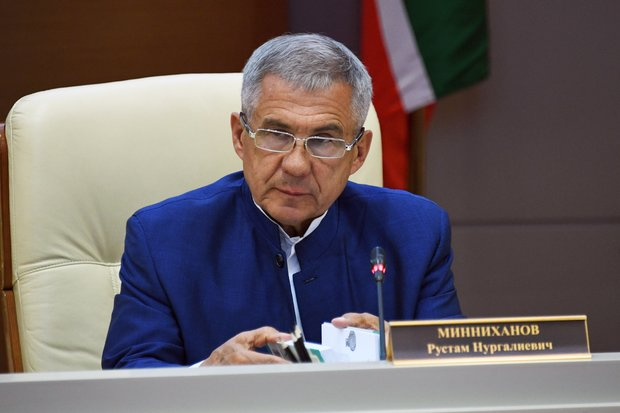
“We are working with you. We are very grateful for the reports. They all have been interesting. Mr Yarullin, all these themes need to be considered. We will work together,” Rustam Minnikhanov concluded.